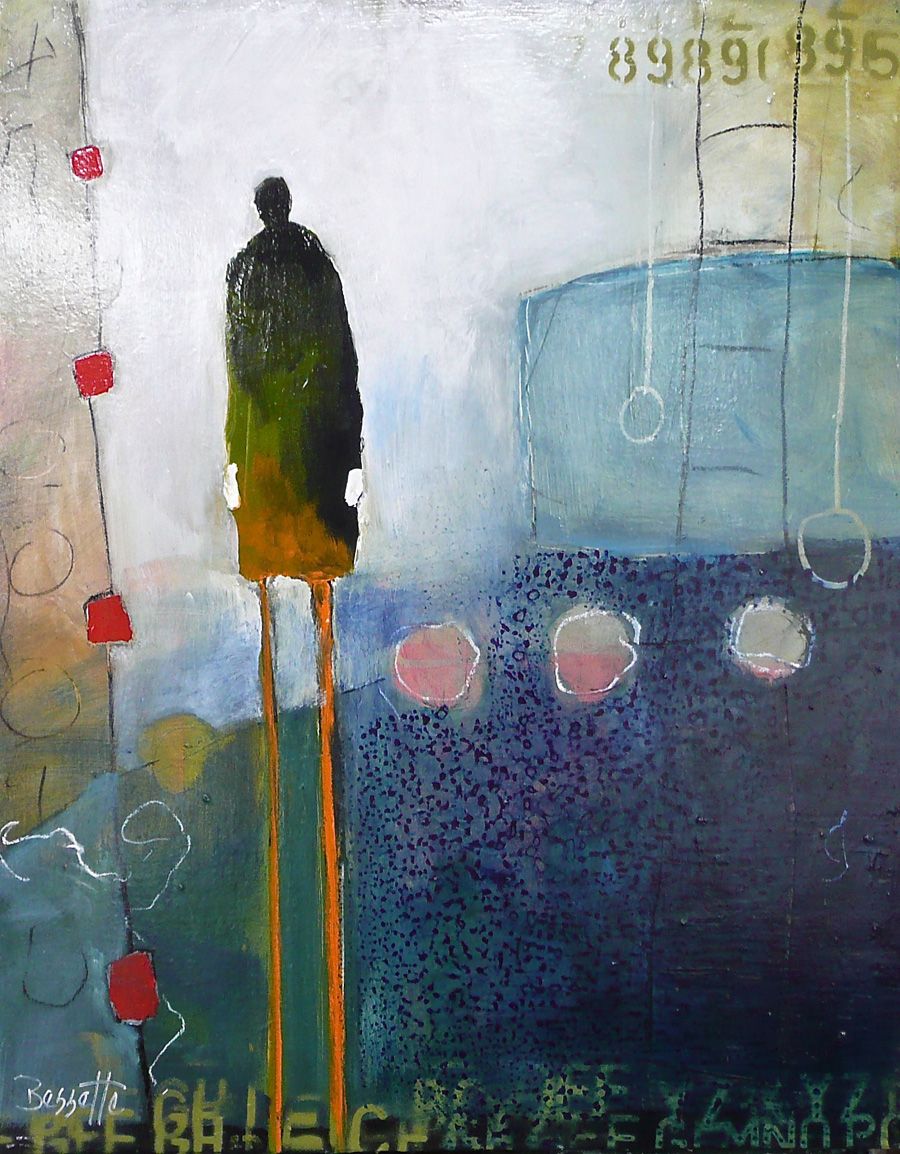Carlos Bortoni
translated from Spanish by Toshiya Kamei
Let's Frame the Picture
That night, after his house was broken into, he regained composure.
He analyzed the situation and thought it could not have been better. He had been to dinner with his family, so no one was ever in any danger. After they got home and parked the car, they found an empty space where the large window used to be. Now, no one would disagree that the windows needed bars.
His daughter was the first to notice something amiss when she stepped on scattered pieces of broken glass. "Why is there broken glass?" she asked. She only needed to raise her head to find the answer. No more words came from her mouth. Ready to go inside, she stepped toward the empty space.
"Don't go in there!" his wife cried, afraid that some intruder might still be lurking in the house. Then she burst into tears, repeating without realizing: "It's not possible . . . . It's not possible."
He remained silent. Taking his daughter's hand, he stared into the hollow space as if hypnotized, unable to suppress the smile that broke across his face.
"We have to call the police,"said his wife as he led his daughter toward the door. No one listened. He slipped the key into the upper lockand turned it halfway. Then he put the second key inside the lower lock and turned it six times to release the huge bolt.
"If somebody is still in there, your cries have alerted them," he said as he put the first key into the middle lock to open the heavy wooden door. "We don't have to enter through the window," he told his daughter.
Six months had passed since the morning when his wife and daughter decided to remove the bars from the large windows facing the garden. He agreed on the condition that the curtains of the large window—through which the house was broken into—would always stay closed, so no one could see that the house was unprotected. One thing led to another and, in less than three weeks, the large window facing the street lost the iron bars, and the curtains stayed open day and night.
"It's only a matter of time," he thought during long sleepless nights, tired of warning his family about the danger of living without security precautions.
They walked past the entrance and turned on the light. The first thing they did was open the door of the bathroom in the small hall and look inside. Then they took a few steps and went into the office on the first floor. He turned on the light and told his daughter to stay put. He grabbed blank sheets of paper and felt-tip pens and handed them to her so she could draw.
He combed through the first floor, turning on all the lights on his path, leaving them on once he left to make sure no one was behind, under, beside, or above anything, including places where even a dwarf could not hide. He went out to the garden and did the same. Back in the garage, he found his wife still kneeling by the car, sobbing in silence.
"Nobody is down here. I'll go upstairs," he said in a formal tone.
There was no surprise on the second floor either. The house was empty. There, against his usual practice, he also left all the lights on.
"Nobody is upstairs," he told his wife when he reached the bottom of the stairs. "At least they left us the beds."
He went into the office and waited for his daughterto finish her drawing.
"Do you like it?" she asked.
"What is it?"
"The window they broke to get into the house."
"Oh, well done,"he said with a smile."Let's frame it."Then he picked her up, carried her to her room, helped her put on pajamas, and tucked her in.
"Sleep tight," he said."We'll take care of that tomorrow."
When he went back to the garage, his wife was sweeping up the broken glass. He went for another broom and helped her finish cleaning. He thought it would be in bad taste to remind her he had warned them this would happen—to tell her "I told you so." He opted to keep his mouth shut while listening to her sobs.
When he went to bed—with a large empty space on the first floor of his house—he had no trouble falling asleep.
Carlos Bortoni was born in Mexico City in 1979 and still lives there today. He studied history at the Escuela Nacional de Antropología e Historia. His books include El imperio soy yo (2007) and Perro viejo y cansado (2007). English translations of his fiction have appeared in The 22 Magazine, Ghost Town, Johnny America, and The Merida Review.
Toshiya Kamei holds an MFA in Literary Translation from the University of Arkansas. His translations include Liliana Blum's The Curse of Eve and Other Stories (2008), Naoko Awa's The Fox's Window and Other Stories (2010), Espido Freire's Irlanda (2011), and Selfa Chew's Silent Herons (2012).
Jeanne Bessette

